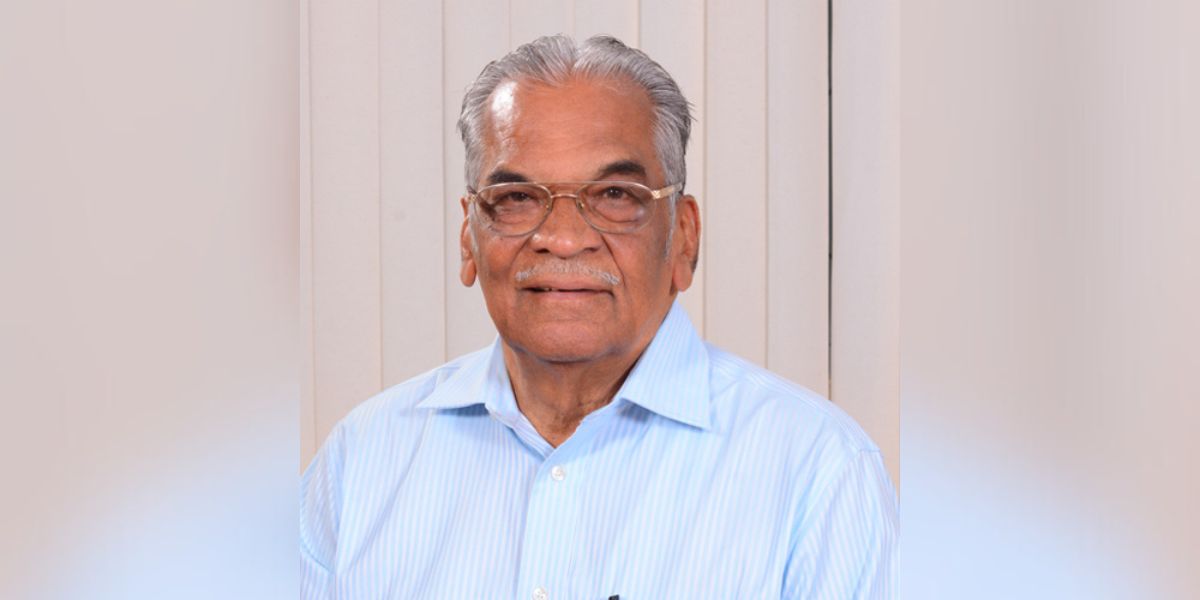As the medical community reflects on his legacy, his life’s work stands as a lasting contribution to equitable and compassionate healthcare.
Published Aug 01, 2025 | 4:04 PM ⚊ Updated Aug 01, 2025 | 4:04 PM

Dr P Namperumalsamy.
Synopsis: Tributes have been pouring in, paying respects and praises, for Dr P Namperumalsamy, India’s first retina specialist and Chairman Emeritus of Aravind Eye Hospital. Widely regarded as a pioneer in ophthalmology, Dr Namperumalsamy was instrumental in shaping Aravind Eye Hospital into one of the world’s largest eye care systems.
Even a week after the passing of Dr P Namperumalsamy, India’s first retina specialist and Chairman Emeritus of Aravind Eye Hospital, tributes have been continuing to pour in from national leaders and medical experts.
Widely regarded as a pioneer in ophthalmology, Dr Namperumalsamy was instrumental in shaping Aravind Eye Hospital into one of the world’s largest eye care systems, advancing low-cost, high-volume models that reached millions.
As the medical community reflects on his legacy, his life’s work stands as a lasting contribution to equitable and compassionate health care.
The veteran ophthalmologist passed away in Chennai on the morning of 24 July, at the age of 85. His death marked the end of a decades-long journey in medicine and public service, one that left an indelible imprint on eye care in India and beyond.
Dr Namperumalsamy was born in 1940 to a farming family, a background that shaped his deep sense of purpose and service. His medical journey began at Government Rajaji Hospital in Madurai, where he laid the groundwork for what would become a lifelong commitment to eye care.
In 1967, he set up the country’s first Low Vision Aid Clinic, a pioneering step at a time when such services were largely unavailable in India. After gaining advanced training in vitreous surgery in the United States, he returned to India and, in 1979, established the Retina Vitreous Clinic at Aravind Eye Hospital.
Around this time, he also founded the GOVEL Trust, which would go on to manage both the Aravind Eye Hospital and its Postgraduate Institute of Ophthalmology. The vision was clear from the start: To eliminate needless blindness through care that was both excellent and affordable. For his work, he was awarded the Padma Shri in 2007.
Leaders across the political spectrum have mourned his passing. Chief Minister MK Stalin and several other dignitaries paid tribute, recognising his lifelong efforts to bring sight and dignity to people across the country.
Tamil Nadu Governor RN Ravi remembered him as a visionary whose impact spanned clinical practice, medical education, and philanthropy.
Prime Minister Narendra Modi on Thursday, 31 July, sent a condolence letter to Dr N Venkatesh Prajna, a senior ophthalmologist and the Chief Medical Officer of Aravind Eye Hospital, Madurai, expressing his grief over the passing of Dr Namperumalsamy
In the letter, the prime minister said the loss “cannot be put into words,” and described Dr Namperumalsamy as a reputed ophthalmologist who helped restore eyesight and preserve vision for countless people.
He noted the doctor’s extraordinary clinical skills and his deep understanding of retinal diseases, calling attention to his lasting contribution to the field. The letter also recognised Dr Namperumalsamy’s dedication to the people of Madurai and the surrounding regions.
“His dedication and commitment toward serving the people were well-known,” the prime minister wrote, adding that his work had earned many national and international honours.
Modi acknowledged not just the doctor’s medical excellence, but also his role in transforming public health delivery through the Aravind model, which focused on large-scale, low-cost, high-quality eye care.
Concluding the letter, the prime minister extended his condolences to the family and said that Dr Namperumalsamy’s values would continue to inspire those he leaves behind. “He will be missed by family, friends and well-wishers, but he will always continue to reside in hearts,” the letter said.
Modi offered prayers for peace and strength to his family.
Dr E Ravindra Mohan, Director of Eye Centre at Gleneagles Hospital and Founder of Trinethra Eye Care in Chennai, described Dr Namperumalsamy as “possibly one of the most impactful eye doctors or even medical professionals the country has seen”.
In nearly five decades of Aravind Eye Hospital’s existence, founded in 1976 as an 11-bed hospital and now one of the world’s largest eye care systems. According to Dr Mohan, Dr Namperumalsamy stood as a “pillar of the organisation”.
Dr Mohan noted that Dr Namperumalsamy was the brother-in-law of Aravind’s founder, Dr G Venkataswamy, and that the Aravind system grew into a globally recognised name, known to virtually everyone practising ophthalmology or eye care.
Calling him “a very tall man,” Dr Mohan remembered him as “a giant among ophthalmologists, a giant among human beings,” and one of the first retinal specialists in India.
“At a time when the field was still developing, he travelled to the United States to train in retina and vitreoretinal surgery, an area that would later prove crucial for restoring vision in patients with retinal diseases, especially diabetic retinopathy,” Dr Mohan said.
After returning from the US, he went on to train thousands of students not just in retinal surgery, but across all areas of ophthalmology and eye care, he said.
Dr Mohan also recalled meeting him in Madurai and at other events: “He comes across as someone who is disarmingly simple, very straightforward, and always has a sense of humour when he speaks.” Despite all the awards, including the Padma Shri, “he possibly never changed as a human being.”
Dr Namperumalsamy, he said, was a true leader in the ‘Aravind’ movement whose outreach, affordability, efficiency and scientific discipline have now become “benchmarks in the field of ophthalmic care”.
“Millions of patients have benefited directly,” he said, “not only from the hospitals, but from the thousands of doctors and students who have passed through the portals of the hospital.”
(Edited by Muhammed Fazil.)
